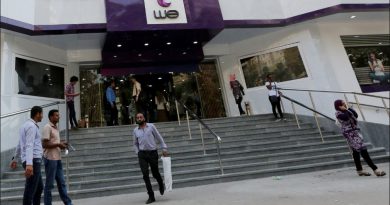Pakistan approves most expensive China-aided project to date
Islamabad (Reuters) – Pakistan’s top economic body on Wednesday approved its costliest project to date as part of the multibillion-dollar China-Pakistan Economic Corridor (CPEC) agreement, giving the go-ahead for a $6.8 billion project to upgrade its railway lines, the government said.
CPEC has seen Beijing pledge over $60 billion for infrastructure projects in Pakistan, central to China’s wider Belt and Road Initiative (BRI) to develop land and sea trade routes in Asia and beyond.
The Executive Committee of the National Economic Council (ECNEC) approved the railway project, known as Mainline-1 (ML-1), on a cost-sharing basis between Islamabad and Beijing, Pakistan’s finance division said in a statement.
Under the project, Pakistan’s existing 2,655km railway tracks will be upgraded to allow trains to move up to 165km per hour – twice as fast as they currently do – while the line capacity will increase from 34 to over 150 trains each way per day.
“The execution of the project shall be in 3 packages and in order to avoid commitment charges, the loan amount for each package will be separately contracted.”
CPEC has come in for criticism from some western countries, particularly the United States, which says that the projects under it are not sufficiently transparent and will saddle Pakistan with the burden of expensive Chinese loans.
Both China and Pakistan have continuously downplayed such concerns over the years. The move ahead on ML-1, which has been on hold for years, will dispel notions that the government of Prime Minister Imran Khan is seeking to roll back some of the mega projects that he himself had questioned when in opposition.
At $6.8 billion, the ML-1 project alone is almost equal to Pakistan’s entire development budget for fiscal 2020/21, which stands at 1.32 trillion Pakistani rupees ($7.9 billion).



